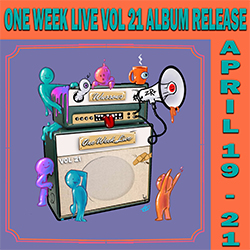Nature Always Bats Last
 Blood and bone, rivers and stone, are all of a piece, you see. For millennia we knew this, knew we belonged to the Earth, until some tinhorn prophet came along boasting the Earth belonged to us, a gift from God, of course, of which we’d be good stewards, of course, then all things holy left us, last seen heading skyward, and magic absconded on angels’ wings, up, up and away.
Blood and bone, rivers and stone, are all of a piece, you see. For millennia we knew this, knew we belonged to the Earth, until some tinhorn prophet came along boasting the Earth belonged to us, a gift from God, of course, of which we’d be good stewards, of course, then all things holy left us, last seen heading skyward, and magic absconded on angels’ wings, up, up and away.
So how’s that working out? Still waiting on the Second Coming, the Third Temple, the Fourth Horseman of the Apocalypse? Still telling old stories which buried stories older still? Tall tales of a bronze-age god who smote the competition. He himself quite recently smote by the Enlightenment and science. Yet, though we now know the Aurora Borealis is lit by particles, not spirits, mystery abides, and it carries us without needing us while we are needing stories.
Mystery abides. Our planet and the depths of space are but its outward face. Though bits of life itself have been patented for sale, we don’t understand what we’re messing with. As Cat Stevens sang, “The soul of nobody knows / how a flower grows.” We may know chlorophyll and hemoglobin molecules are within a few slim atoms of identical — all the green in nature so close in composition to our own ruddy animal blood, and we can manipulate both until Frankenstein’s monster seems like the boy next door, but mystery abides and it’s going nowhere, whichever new sherif’s in town.







 [Editor’s note: For this week’s essay we’ve pulled out a relic from the archive of Slim Goodbuzz, who served as Duluth’s “booze connoisseur” from 1999 to 2009. As construction continues on the new Ursa Minor Brewery at 2415 W. Superior St., this article harkens back to the days when the building was home to a pool hall and drinking establishment called Horseshoe Billiards. The article was originally published in the May 8, 2006 issue of the Transistor.]
[Editor’s note: For this week’s essay we’ve pulled out a relic from the archive of Slim Goodbuzz, who served as Duluth’s “booze connoisseur” from 1999 to 2009. As construction continues on the new Ursa Minor Brewery at 2415 W. Superior St., this article harkens back to the days when the building was home to a pool hall and drinking establishment called Horseshoe Billiards. The article was originally published in the May 8, 2006 issue of the Transistor.]








